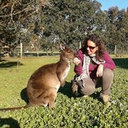Tobacco habits in nocturnal frontal lobe epilepsy.
Parole chiave
Astratto
The beneficial effect of nicotine has been reported in autosomal dominant nocturnal frontal lobe epilepsy (ADNFLE) patients, but not tested in sporadic cases. Recently, a nicotine defect in the arousal pathway has been hypothesized even in sporadic NFLE patients and their relatives. This case-control family study was designed to test whether NFLE subjects were more likely to use tobacco than controls, as an indirect marker of cholinergic arousal system dysregulation. At least four relatives were included for each NFLE proband and control. Each subject was questioned about tobacco habits; 434 individuals were recruited. Moreover, we compared NFLE patients with age- and sex-matched controls to determine whether they are more likely to use tobacco. We found a slightly higher trend of tobacco use in NFLE probands compared to that in control subjects; we did not find any significant difference in the distribution of tobacco use among NFLE group compared to that in the control group.


